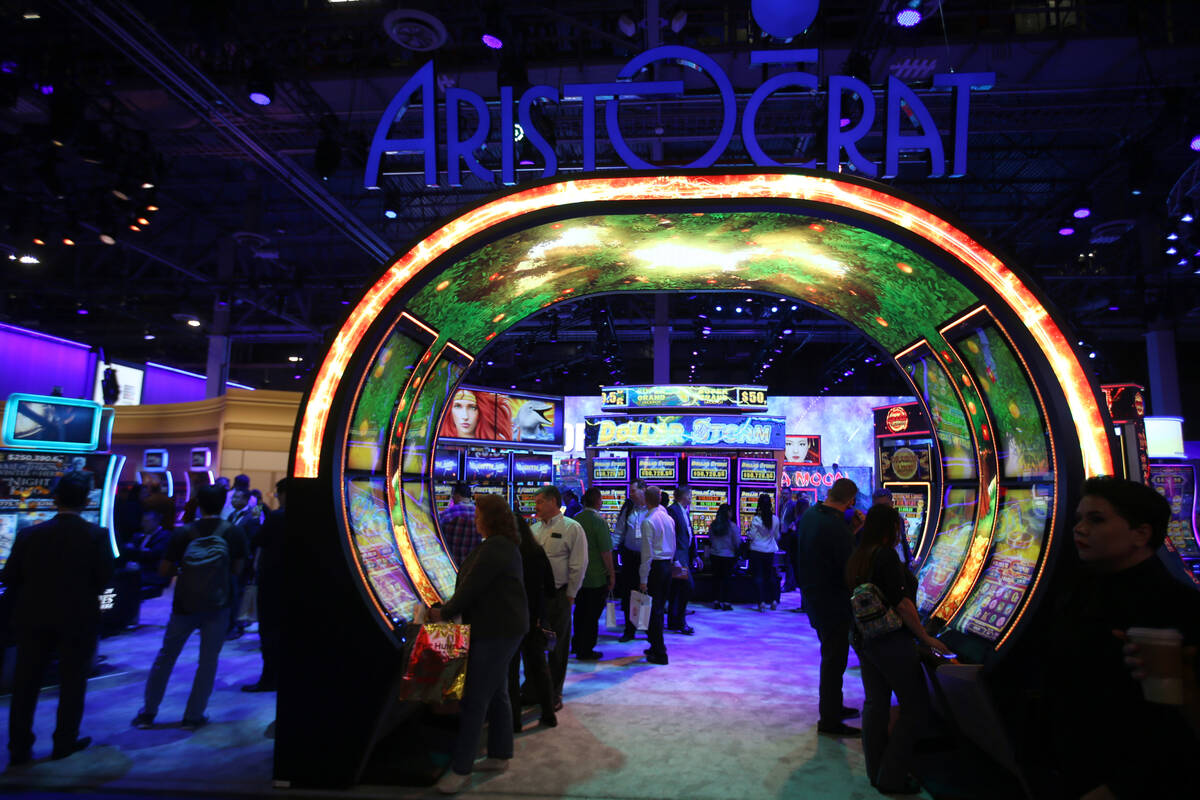Copyright lawsuit involving Las Vegas company faces long odds, experts say
Legal experts say Aristocrat Technologies Inc.’s copyright infringement lawsuit against Las Vegas slot machine manufacturer Light &Wonder Inc. may be difficult to win, but an unusual wrinkle in the case — that former Aristocrat employees worked on their rival’s product — could be significant to the outcome.
Australia-based Aristocrat filed the lawsuit in U.S. District Court in Nevada in February, accusing Light &Wonder of producing “a cheap knockoff” of its successful Dragon Link and Lightning Link games.
Aristocrat is seeking an injunction calling for Light &Wonder to stop manufacturing and distributing what it considers to be a copycat game and for financial damages to be determined at trial. In its filed response in March, Light &Wonder said the lawsuit has no merit.
In its five-count lawsuit, Aristocrat says Light &Wonder’s Jewel of the Dragon and Dragon Train products are similar to its Dragon Link and Lightning Link machines. Two members of the team that developed the Light &Wonder products, Emma Charles and Lloyd Sefton, joined Light &Wonder in 2021 after working for Aristocrat.
Lawsuits common
“Slot machine manufacturers sue each other all the time,” said I. Nelson Rose, professor emeritus at Whittier College and author of the GamblingAndTheLaw blog. “I’ve never counted up the lawsuits, but there could be more lawsuits between manufacturers than any other two parts of the gaming industry.”
Rose said a key element of the Aristocrat case is the connection with Charles and Sefton.
“It’s not a patent suit and patents do tend to be more complicated and a little more serious,” he said. “So it’s kind of a typical suit between manufacturers, except it appears that there are individuals who were involved in the creation of the Aristocrat game.”
Mary LaFrance, a professor of intellectual property law at the Boyd School of Law at UNLV and the author of several books on intellectual property and entertainment law, said Aristocrat’s road to proving the connection between the two employees and the Light &Wonder games may not be easy.
“I would say it’s not easy unless you have a smoking gun,” LaFrance said in an interview.
Data downloads
“They (Aristocrat) mentioned one employee was caught downloading thousands of files before he left Aristocrat,” she said.
She suspects during the discovery process the downloads would be emphasized.
“They’d be looking at his personal devices to see what he downloaded (to find) direct evidence of information that was taken by an employee and then potentially disclosed to the new employer. But the thing is with that particular employee, I think, was such a recent hire that I’m somewhat doubtful that anything he took with him would actually have influenced the game that is currently being offered by Light &Wonder,” she said.
Rose and LaFrance agreed that differences in the use of images of dragons and the color red — both popular on games marketed particularly to Asian players because of their cultural significance — could be difficult to prove in court.
LaFrance also said Aristocrat may be reluctant to introduce too much detail about trade secrets in a court setting.
“That creates a bottleneck at the very beginning of a trade secret case because the plaintiff wants to disclose as little as possible.” she said.
Rose said a likely outcome of the case is that it’s settled out of court. He said about 93 percent of those types of lawsuits are settled. That’s what happened earlier this week in a case involving manufacturing giant IGT and Las Vegas-based Acres Technologies on a cashless wagering system.
IGT had accused Acres of violating at least four of its patents in the development of its Foundation system in a U.S. District Court case in Nevada.
Contact Richard N. Velotta at rvelotta@reviewjournal.com or 702-477-3893. Follow @RickVelotta on X.


















